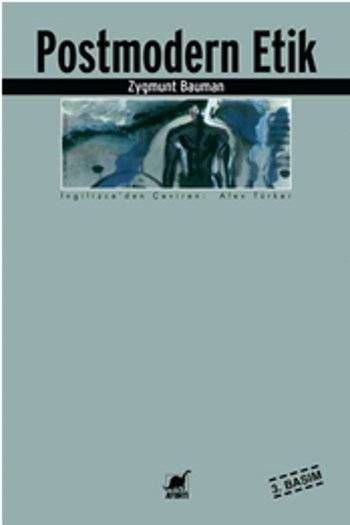
Postmodern Ethics
We have been discussing modern industrial civilization for years. We will argue more to find out who committed the original sin, who put an end to those beautiful days when humans once lived in peace with nature, and who left us naked in the middle of the storms. Because knowing that "God is dead" and breaking the chains of tradition was not enough; This time freedom started to burn our lungs. Freedom meant taking responsibility for oneself and the other, living entwined with uncertainties and insoluble contradictions, that is, being modern individuals. But freedom was heavy. We couldn't carry it. Except for those festive moments of revolution and rebellion, we invented new idols: "reason", "contract", "law"... etc. The comfort of being able to act "freely" in a previously mapped area, believing that we could be exempt from the dead ends of moral action, could be seductive for a while. But only for a while... In this work, which was received with great enthusiasm, Zygmunt Bauman, in addition to the attempt to respond to moral problems with coercive normative regulations under the conditions of modernity, also develops two coordinated developments such as the search for the absolute, universal and fundamental at the theoretical level in order to ensure that these normative regulations are binding. It is based on a post-modern perspective that declares the bankruptcy of projects. It is a research that aims to pave the way for a postmodern ethics by accepting that humans are morally ambiguous, that moral phenomena are inherently irrational, that it is up to the individual to deal with the insoluble contradictions and moral problems imposed by each particular situation, that morality cannot be universalized under an ethical code, and that the first reality of the human self is moral responsibility. yeast he attempts. While doing this, he makes great use of Emmanuel Levinas's philosophy, which states that "the first philosophy is a philosophy of ethics", "being for the Other comes before 'being with' the Other" and that the essence of morality consists of not containing any essence. Through this philosophy, Bauman demonstrates that the guardians in the form of "law", "society" and "tradition", far from being the source and protector of morality, dry up the moral self. He describes the age we live in as the "re-sanctification" of the world that turns towards the virtue of emotions and the legitimacy of the unexplained. Postmodern Ethics is a morality without laws, a morality that becomes visible at moments where the fully moral self is active, a morality that finds its own justification in itself, a morality that accepts the guidance of morality. It describes the contours of a morality that elevates people to the status of "saints". It heralds a "dawn time" in terms of ethics for people who are not caught up in the illusions of modernity. We hope that the invitation in this book to an ethical conversation worthy of "saints" will not remain unanswered in the lands we live in, even if there is no other reason, even thanks to a tradition that chants "Enel Haq"...
Number of Pages: 352
Year of Printing: 2016
Language: Turkish
Publisher: Details Publications
First Print Year: 2016
Number of Pages: 352
Language Turkish
| Publisher | : | Details Publications |
| Number of pages | : | 352 |
| Publication Year | : | 2016 |
| ISBN | : | 9789755391816 |
| Translator | : | Alev Turker |
| The heart | : | Turkish |


